The Best Top 5 Myths and Facts about Weight Loss [Guest Post]
![The Best Top 5 Myths and Facts about Weight Loss [Guest Post]](https://cdn.proshark.com/daimanuel/2013/09/Featured-Image-5-Myths-Weightloss-650x330.jpg)
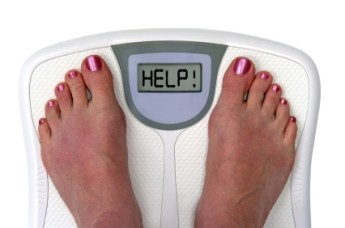 There are several myths and misconceptions about weight loss and weight gain. No matter how well some people follow a strict fitness routine
and sensible nutrition plan
, it seldom shows effective results. Elimination of certain types of food items and fasting to lose weight has often resulted in more weight gain. So it's essential to seek the advice of practiced dietitians before following weight loss programs. There's teams of registered dietitians trained to offer programs for weight loss all over North America ( even as far north as Anchorage, Alaska
).
There are several myths and misconceptions about weight loss and weight gain. No matter how well some people follow a strict fitness routine
and sensible nutrition plan
, it seldom shows effective results. Elimination of certain types of food items and fasting to lose weight has often resulted in more weight gain. So it's essential to seek the advice of practiced dietitians before following weight loss programs. There's teams of registered dietitians trained to offer programs for weight loss all over North America ( even as far north as Anchorage, Alaska
).Some of the most common myths associated with weight loss programs include the following:
Myth: If I eat smart and exercise consistently I'll never gain weight
[highlight] The Facts:[/highlight] As the human body ages, the overall metabolism of the body also slows down. It is therefore quite important to make lifestyle and dietary changes when a person grows and ages. It becomes important to watch what we eat and move our bodies (exercise) more to avoid unnecessary, gradual weight gain. Bottom line, create a nutrition/fitness plan that is flexible and accommodating to your lifestyle - if you "fail to plan, then plan to fail", it's that simple.
[caption id="attachment_12235" align="aligncenter" width="464"]
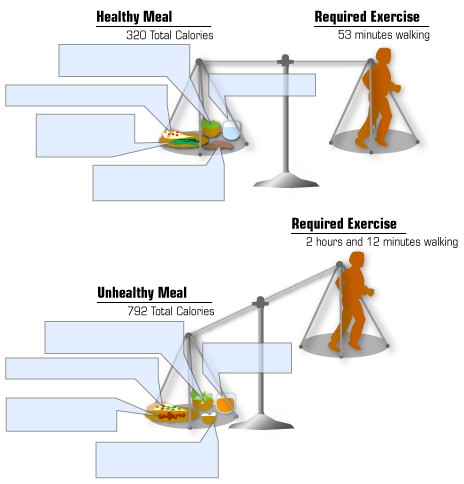 Weighing in on diet and exercise (graphic care of learn.genetics.utah.edu)[/caption]
Weighing in on diet and exercise (graphic care of learn.genetics.utah.edu)[/caption]Myth: Fat people are more unhealthy than skinny people
[caption id="attachment_12231" align="aligncenter" width="280"]
 Choose wisely...[/caption]
Choose wisely...[/caption][highlight] The Facts:[/highlight] According to recent studies, obese and overweight people are not a risk of developing heart diseases and high blood pressure compared to slim people if they are fit metabolically. Only some types of fat are unhealthy and increase the risk of developing heart diseases, diabetes and other health issues. However, people who gain excess weight have a much higher risk of developing heart disease, diabetes, and other health complications that can be directly tied to unhealthy weight gain.
Myth: Consuming small snacks is a no-no
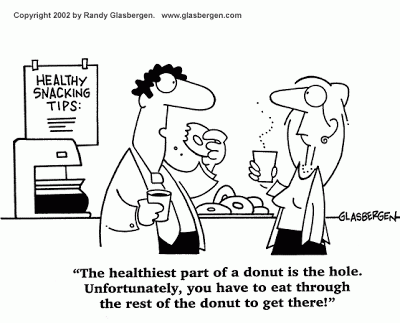
[highlight] The Facts:[/highlight] According to the some of the best dietitians, starving your body to lose weight is quite detrimental to overall health and it can affect your metabolism. Consuming snacks in between meals helps to actually curb the appetite and reduces the total consumption of calories if executed properly. Most of the dietitians recommend consuming five to six smaller meals per day instead of eating the traditional three staple meals breakfast, lunch and dinner.
Myth: Low intensity exercises are ideal for weight loss
[highlight] The Facts:[/highlight] Fitness experts recommend both high and low intensity exercises to lose weight. In order to burn overall calories, both cardiovascular and anaerobic exercises are equally important.
[caption id="attachment_12234" align="aligncenter" width="752"]
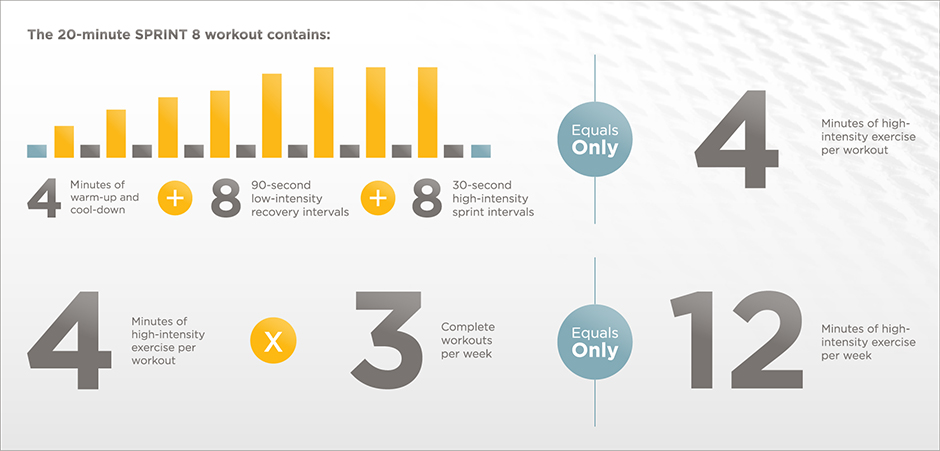 Sprint 8 Workout care of Vision Fitness & Phil Campbell[/caption]
Sprint 8 Workout care of Vision Fitness & Phil Campbell[/caption]Myth: All carbohydrates are bad for you, duh!
[highlight] The Facts:[/highlight] All carbohydrates are different but not necessarily all bad for you. From a chemical standpoint - a term called the glycemic index is "a number representing the ability of a food, relative to that of glucose, to increase the level of glucose (sugar) in the blood". Some carbohydrates when eaten or drank, can either spike your blood sugar levels quickly (i.e. glass of orange juice) where others can increase gradually over time (i.e. oatmeal - the real stuff, not instant). It is believed that diets that are carb sensitive or touted "low carb" are ideal for weight maintenance. While this might be true for some individuals, the nut of it is to try and avoid highly processed, simple carbohydrates that are rich in wheat flour, gluten and sugar. However, whole grains, thick brown rice and grain breads are considered to be a healthier option if you are going to consume breads period. Vegetables and fruits also include an array of nutrients and fiber which are required to remain healthy and fit and their respective sugars are lower glycemic index when consumed in its whole, unprocessed forms.
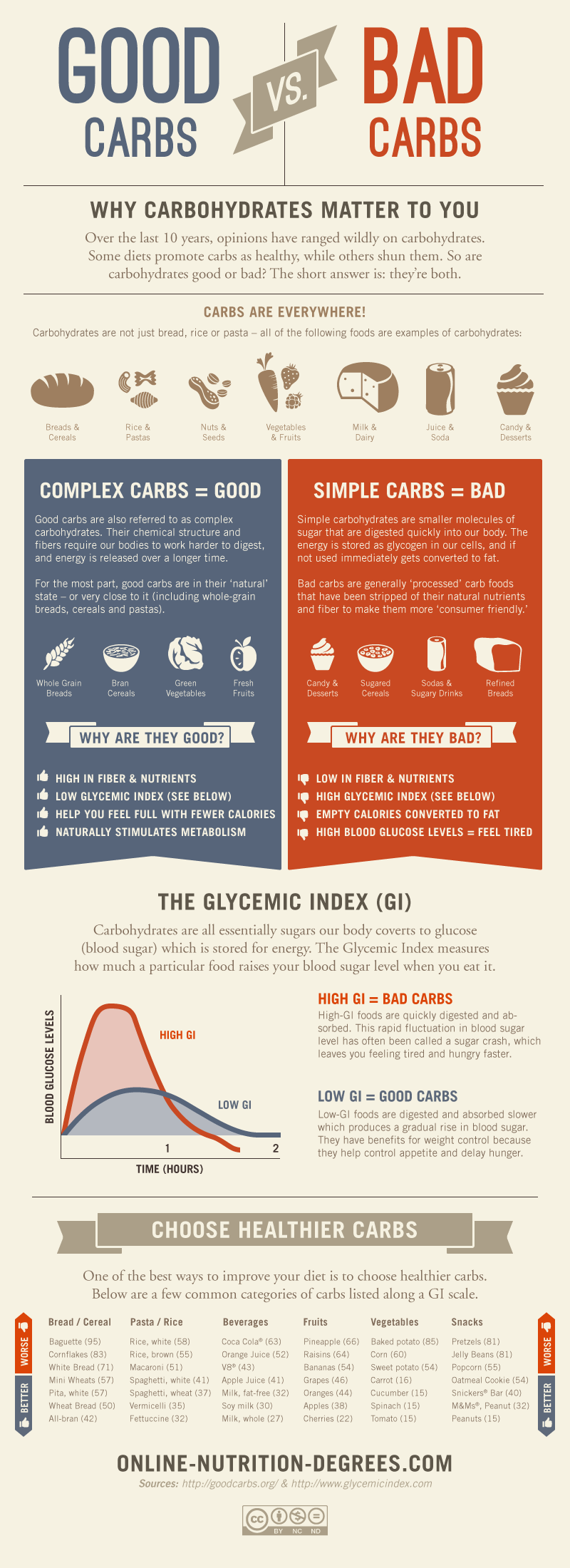
Today there are several healthy options while choosing fast food too. Salads, grilled chicken instead of fried chicken and soft tacos can be chosen from a fast food menu. So there is hardly any need to avoid fast food totally. The weight loss dietitians recommend simple techniques to lose weight and remain fit and healthy.
[divider]
 This post is created by Dana Smith: Dana recommends a variety of weight loss clinics in Anchorage, in this post she is sharing 5 top facts and myths related to weight loss. You can contact her through twitter
and on Google+
This post is created by Dana Smith: Dana recommends a variety of weight loss clinics in Anchorage, in this post she is sharing 5 top facts and myths related to weight loss. You can contact her through twitter
and on Google+




































































































